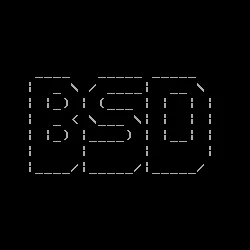FreeBSD 14.0-RC2 Pulls In OpenZFS 2.2, OpenSSH 9.5p1

FreeBSD 14.0-RC2 pulls in the newly-released OpenZFS 2.2 with block cloning, performance improvements, BLAKE3 check-summing, a new corrective "zfs receive" for healing corrupted data, Zstd early abort, and much more. It's great that OpenZFS 2.2 was pulled into FreeBSD 14.0 in time for the release for providing this latest open-source ZFS file-system support. FreeBSD 14.0-RC2 also adds support for ZFS-based images on the Microsoft Azure cloud.
FreeBSD 14.0-RC2 also updates to OpenSSH 9.5p1, OpenSSL 3.0.11, and has landed some last minute fixes. Among the fixes are dealing with building virtual machine images for the Google Cloud (GCE), VFS-related fixes, and other problems resolved.
FreeBSD 14 is the last series for this OS project supporting 32-bit systems. FreeBSD 15 will drop support for 32-bit hardware platforms although FreeBSD 15 64-bit systems will retain support for running 32-bit binaries. That 32-bit binary compatibility is expected to be supported at least through FreeBSD 16. FreeBSD 14 also adds a new "fwget" utility for fetching firmware packages. The fwget utility initially can get firmware for Intel and AMD GPUs.
FreeBSD 14 is also replacing sendmail with dma, Kinst as a new DTrace provider, makefs adding ZFS support, boottrace is a new interface for capturing trace events during system boot and shutdown processes, the kernel TLS offloading handling receive-side offloading of TLS 1.3, initial WiFi 6 support in WPA, sh is now the default shell for the root user, and an updated LLVM toolchain. FreeBSD 14 on ARM64 and AMD64 now supports up to 1024 CPU cores, up from the current limit of 256 cores. With AMD EPYC Bergamo now allowing 128-cores / 256-threads per socket, that current FreeBSD limit is exceeded so now at least FreeBSD 14.0 will allow for playing with these high core count servers. FreeBSD 14 should also reboot faster, ISA sound card support was removed, and there is a new Intel QAT driver with more features and support than the prior FreeBSD QAT driver for QuickAssist Technology. Netflix also sponsored the removal of many other old drivers from FreeBSD.
More details on the new FreeBSD 14.0-RC2 release for last minute testing via freebsd-stable. The FreeBSD 14.0-RELEASE is expected to happen around 7 November while before then there should be a third and final release candidate.
10 Comments

